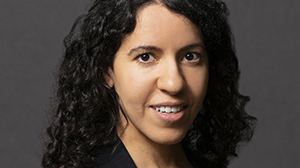Could history made in the spring continue through the summer? After tense missile tests and discussions of “bloody nose” strikes, the Korean peninsula has been experiencing a period of unprecedented diplomacy. In April, North Korean leader Kim Jong-Un walked across the border into South Korea, the first time a North Korean Supreme Leader has set foot in South Korea since the end of the Korean War, and met with South Korean President Moon Jae-in. The historic summit ended with Kim and Moon signing the “Panmunjom Declaration,” which included the goals of denuclearizing the Korean Peninsula and ending the Korean War by the end of 2018.
Will the same be said for the United States? While hopes for diplomacy at the June 12 summit in Singapore were temporarily unsettled after an abrupt cancellation by President Trump, the meeting is proceeding as planned and will be an unparalleled encounter. No U.S. president has ever met with the Supreme Leader of North Korea.
In preparation for the event, the Charles Koch Institute brought together two of the United States’ top Korea experts, Victor Cha and David Kang, to debate what diplomatic approach should be taken and how optimistic the watching world should be about any potential outcomes.
Moderator Greg Jaffe, reporter at The Washington Post, began by asking the debaters to explain the root of tensions, North Korea’s nuclear weapons. Being an isolated, poor nation, why would North Korea want to make this investment? Both Cha and Kang encouraged the audience to look at the situation from North Korea’s perspective and pointed to two difference reasons, fear and coercion. According to Kang, the insecurity of the current North Korean regime has been influential in increasing the desire for nuclear weapons, but predatory gains are also tied to the movement towards becoming a nuclear state. Specifically, North Korea wants to preserve its ability to manipulate others into “giving them things to maintain the peaceful status quo.”
On this particular problem, we’ve tried one way for 20 to 30 years… and it hasn’t gotten better. — @VictorDCha #NKdebate pic.twitter.com/VvOrL2RwSG
— Charles Koch Inst. (@CKinstitute) April 19, 2018
Cha agreed that fear played a large role but warned that the coercion angle was something to be more concerned about, “It’s fear until you have these capabilities, and then once you have the capabilities and can deter others, like the United States possibly, then that can be more than fear. Once your capabilities change your intentions might change too.”
Jaffe then asked what was on the mind of the majority of those in the audience, “Is this a cult or a country?” Though it is a sovereign county that has a cult of personality leadership, stated Cha, they are rational. However, “You can be rational, and in a sense, you can be deterrable, but you can also become much more of a risk-taker… you can be rational but still be dangerous.” Despite these worries about dramatic actions by a nuclear North Korea, both Cha and Kang agreed that even with nuclear weapons, North Korea could still be deterred due to the impact military retaliation by the United States would have on the regime.
You can be rational and still be dangerous,” says @VictorDCha. @daveckang quickly follows up with “…which is exactly why you don’t force them (North Korea) into a corner. #NKdebate
— Charles Koch Inst. (@CKinstitute) April 18, 2018
What’s behind the recent diplomatic thaw with North Korea? While Kang was broader in his reasoning, pointing to a slower, strategic build-up by the North Koreans, Cha pointed to three things; sanctions, concerns about Donald Trump and his rhetoric about military action, and ICBM progress.
The meeting between Xi Jinping and Kim Jong-un did not seem rushed…Warming wasn’t that much of a surprise. China has always said ‘sanctions are the path back to diplomacy.’ @daveckang @USCKSI #NKDebate @CKinstitute
— CSIS Korea Chair (@CSISKoreaChair) April 19, 2018
Cha and Kang both agreed that preventive war would be the worst-case scenario of military actions the United States could take against North Korea due to its high cost and low success ratio. Kang elaborated, “There are ways in which if North Korea attacks first, that’s the end of the regime and there would be an overwhelming response. But a true preventive war… I think is incredibly dangerous. We can lob a hundred missiles at Syria, because they can’t really do anything to us. North Korea can kill U.S. citizens today.”
While the evening primarily focused on potential outcomes of a U.S.–North Korea summit, the scope briefly broadened to include how others in the international community view the Hermit Kingdom. According to Cha, the most notable difference between is that the United States “has always looked at this problem as a problem to be solved. The view from South Korea, China, the view from Russia… it’s not a problem to be solved, it’s a problem that has to be managed, and that’s a big difference.”
Can the United States accept the situation with North Korea as one to manage instead of one to solve? Kang referenced tensions during the Cold War, and how opening lines of communication helped “manage a problem that we weren’t going to fundamentally solve.” Cha was less optimistic, stating that North Korea wasn’t a problem the United States or Japan could accept being managed despite being on the cusp of diplomatic summits.
The Charles Koch Institute partnered with Real Clear Politics to poll both South Korean and United States residents about their attitudes around the June 12 summit.



